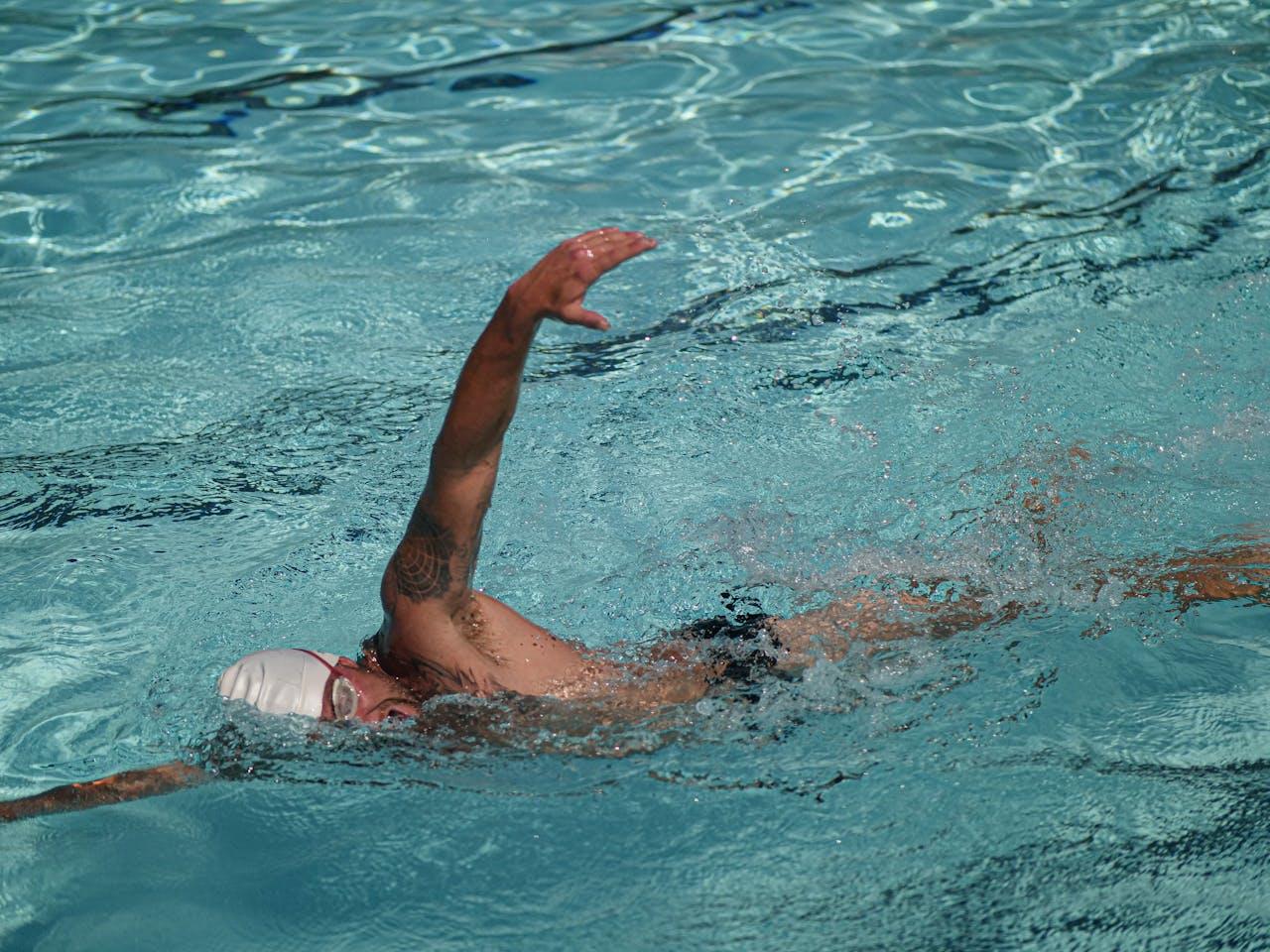Greetings from the peaceful world of swimming! Swimming can be a great way to start a new training routine, recharge in the water, or improve your swimming abilities.
Many people find it challenging to consider going into the pool for the first time, but don't worry! You can soon be smoothly and confidently floating on the water with the correct instruction and an enthusiasm to learn. We'll walk you through all you need to know to start swimming in this beginner's guide. We'll cover everything, from selecting the appropriate equipment to learning the fundamentals to ensure you're comfortable.
So gather your towel and swimsuit, and let's explore the magnificent world of swimming together!

How Do I Start Learning How to Swim?
Here are four suggestions to help get you started if you're prepared to take a swim lesson:
- Choose a Supportive and Safe Environment:
Start your swimming adventure in a welcoming and safe environment, such as a nearby club with shallow depths and lifeguards on duty. Any early anxiety will disappear if you feel safe and comfortable in your surroundings, freeing you up to concentrate on your studies. - Start with Fundamentals:
Gain mastery over fundamental aquatic abilities, such as breathing control, floating, and paddling. Your swimming technique will be built around these basic abilities, giving you confidence in the pool. To learn good techniques and form, consider signing up for beginner swimming courses or getting advice from a trained instructor. - Be Patient and Take It Slow:
Knowing how to swim is a long process that requires persistence and patience. Don't let early difficulties or failures deter you. Before going on to more complex methods, take your time and practice each ability till you feel comfortable with it. Recall that while improvement may seem slow initially, it will come with persistence. - Consistent exercise:
You must practice frequently to get better at swimming, just like with any other talent. Regular practice will help you strengthen your abilities and increase your confidence in the water, whether a few laps in the pool a few times a week or going to structured swimming lessons.
Check out Superprof's introductory swimming lessons if you want individualized tuition targeted to your needs and would like to begin learning how to swim. Get beyond difficulties and access knowledgeable coaches offering one-on-one advice and support. Take a deep breath and discover the pleasures of underwater exploration with the guidance of an experienced teacher.
How can a beginner get better at swimming?
Your technique and consistency should be your main priorities as a beginner swimmer. Gaining strength, endurance, and mastery in the water requires regular practice. Make it a goal to swim many times a week, progressively up the length and intensity of your sessions as you get better at it.
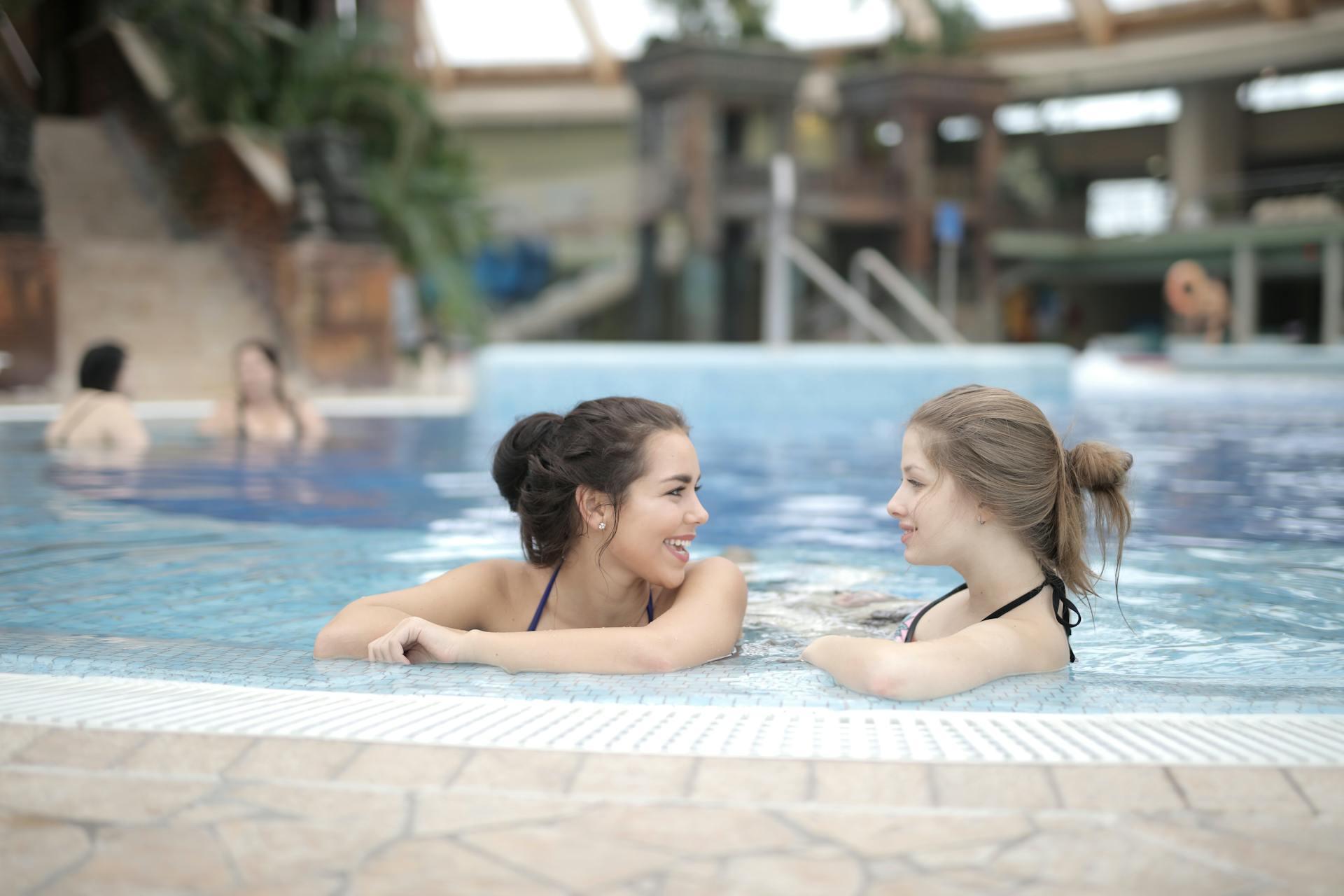
Also, prioritize improving your swimming technique by getting input from coaches or practicing swimming drills. Focus on developing foundational abilities like good posture, breathing exercises, and practical stroke mechanics. Your swimming skills will noticeably improve with regular practice and an emphasis on technique.
Establishing clear objectives and monitoring your development are essential to improving as a swimmer. Setting achievable goals will help you stay motivated and give your preparation direction, whether learning a new stroke, increasing the time you can swim before stopping, or boosting your pace.
Divide ambitious objectives into more doable benchmarks, and acknowledge and appreciate your progress. Additionally, incorporate cross-training activities like strength and flexibility for overall fitness and injury prevention.
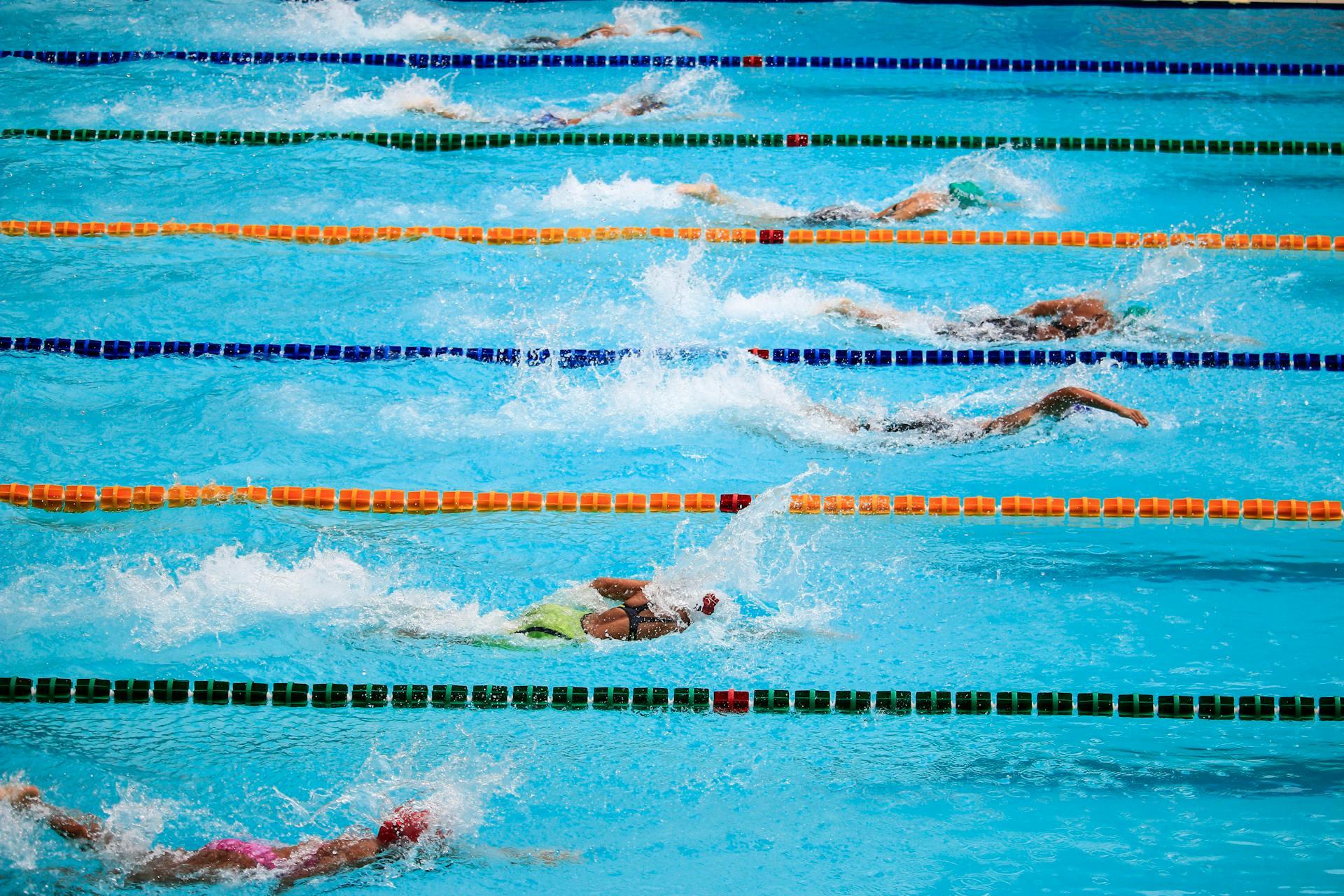
How Many Days Does It Take to Learn Basic Swimming?
In response to your question, it's critical to remember that everyone learns fundamental swimming at a different pace. There is no set time frame because it relies on several variables, including each person's comfort level in the pool, prior experience with aquatic activities, their level of physical fitness, and how consistently they practice.
It could take months of consistent practice to gain basic swimming skills, but it might take years for others to feel entirely comfortable in the water.
There are techniques to speed up the learning process, though. Seeking advice from a certified coach or swimming instructor will help you advance quickly. You may improve your technique and get past obstacles more quickly with individualized training and feedback.

What Is the Easiest Swimming Technique for Beginners?
The following three swimming strokes are the most successful in helping newbies get over their fear of the water and improve their swimming speed:
Freestyle
Often known as front crawl, is frequently regarded as the most straightforward and most organic swimming stroke for newcomers. It entails breathing to the side, maintaining the face submerged in the water, and alternating arm motions and flutter kicks. Since freestyle gives the swimmer a feeling of control and stability in the water, it's easier for many beginners to learn. The freestyle stroke can also increase endurance and offer a decent cardiovascular exercise.
Backstroke
Another beginner-friendly swimming style that can assist in getting over a fear of the water is the backstroke. Backstroke allows swimmers to keep their faces above the water, unlike freestyle, which might reassure novices concerned about submerging their faces. Lying on one's back, the stroke entails flutter kicking and alternating arm movements. Beginners can enhance their balance in the water and practice breath control with the backstroke.
Breaststroke
Breaststroke swimming is frequently advised for beginners because of its soft strokes and slower rhythm. This stroke is a comfortable and reasonable choice for individuals new to swimming since it incorporates synchronized arm movements, a frog-like kick, and the gliding phase. Beginners can concentrate on timing and rhythm with breaststroke because they won't feel hurried or stressed. Breaststroke is also a popular relaxing stroke, perfect for novices still gaining trust in the water.
Although these three swimming styles are frequently suggested for novices, it's crucial to remember that comfort levels and personal preferences may differ. Learning to swim faster and overcome your fear of the water requires experimenting with several strokes to see which feels most natural and pleasurable.
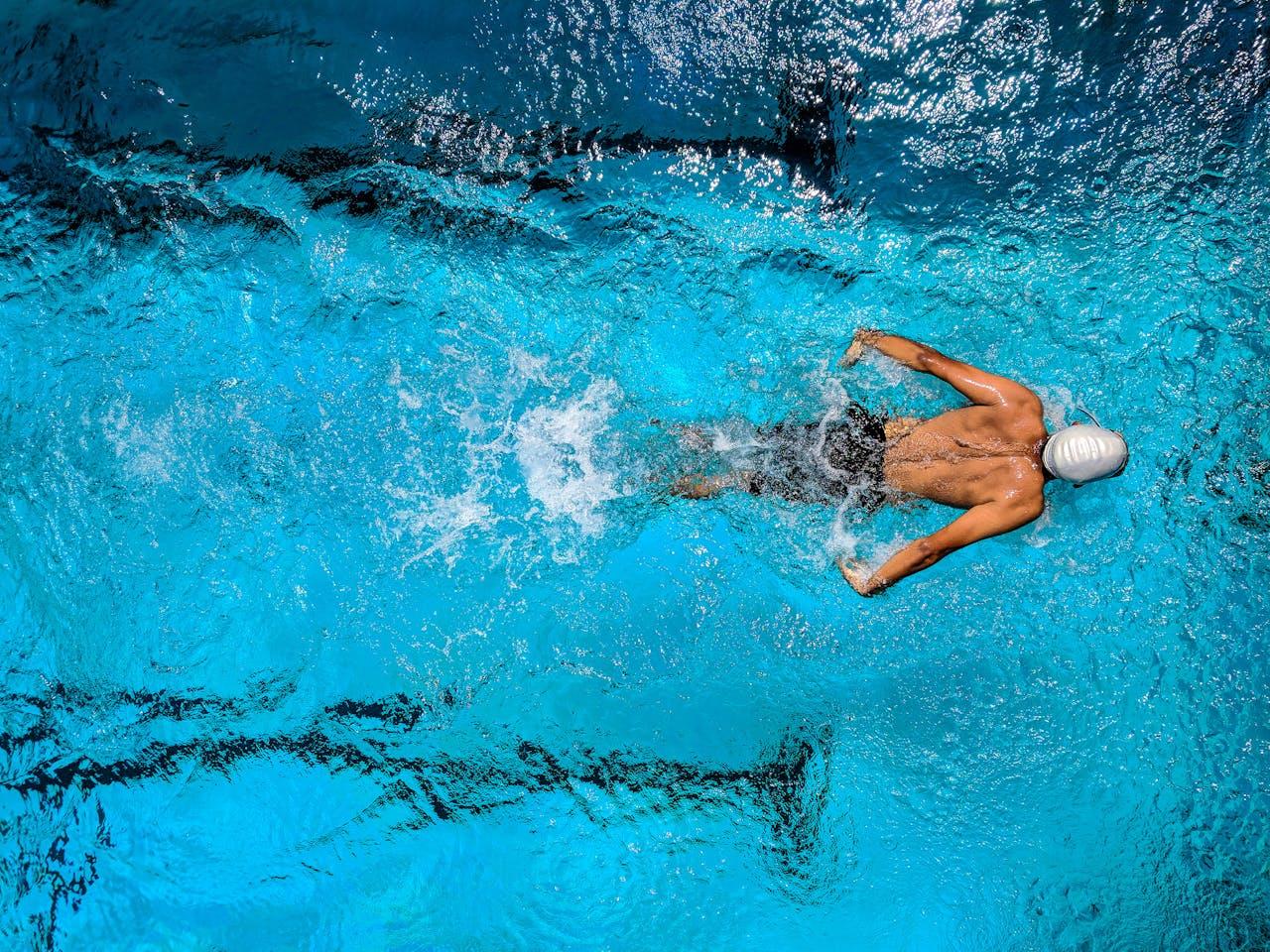
Is It Challenging to Learn to Swim After 30?
Learning to swim has no expiration date. Whether you're thirty or eighty, it's always possible to start swimming, regardless of age. Getting older should keep you from learning new things and having fun in the water. Adults may learn to swim at any stage of life with the correct attitude, perseverance, and guidance.
You'll be gliding over the water with confidence and excitement in no time if you embrace the experience and take it one stroke at a time (starting with breaststroke can be the easiest). So don't think twice, jump right in and begin the journey!
Why Is It Hard to Learn How to Swim?
For many people, getting started with swimming can be difficult for various reasons. Some people find that being afraid of the water or uncomfortable in it prevents them from learning anything. It takes dedication, patience, and frequently the advice of an experienced coach to overcome this anxiety.
Futhermore, developing the timing and coordination needed for various swimming strokes can be challenging, particularly for people not generally at ease in the water. For beginner swimmers, mastering breathing control can often be tricky. Depending on their background, physical capabilities, and self-assurance, adult lessons might be challenging for different people. People can progressively surmount these challenges through appropriate guidance, experience, and a nurturing educational setting.
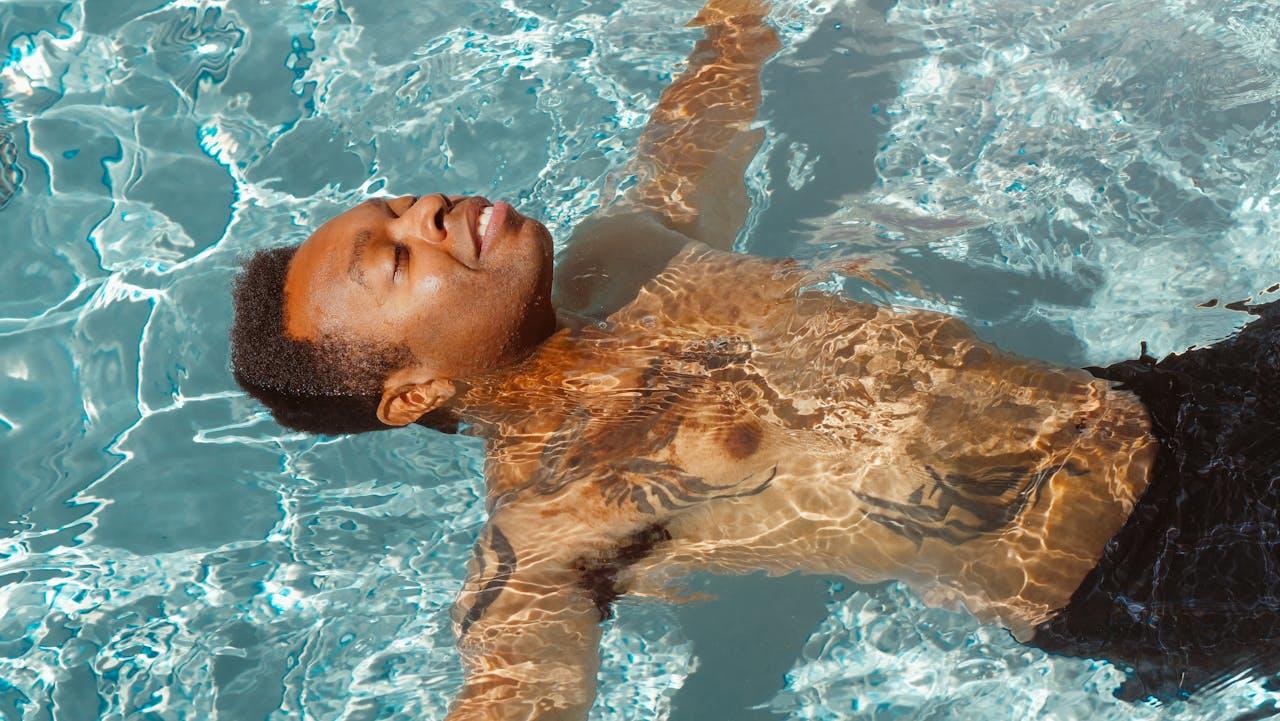
Can You Naturally Learn How to Swim?
In conclusion, learning to swim takes deliberate work and practice for many people, even though others may pick up the talent naturally. Yes, you can learn to swim on your own. Many people have learned to swim effectively independently with dedication, self-guided practice, and support.
Conversely, taking swimming lessons from a certified instructor might have several benefits. A coach may offer planned training programs, insightful criticism, and individualized instruction catering to your specific requirements and objectives. This can speed up the learning curve, enhance technique, and increase self-assurance in the water.
This is where Superprof comes in. Superprof offers a wide range of qualified swimming instructors across the US, that are ready to help you advance your swimming abilities under the direction of a reliable expert. Superprof gives you access to qualified swimming instructors who can help you with your swimming journey, regardless of your skill level. Why wait? Start swimming with a trustworthy Superprof tutor today!
Summarize with AI:

